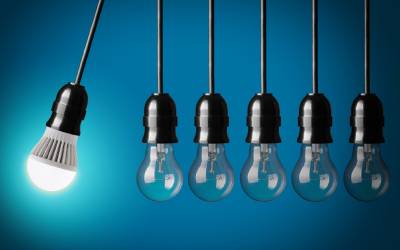Eve Is Ready and Willing to Enhance Smart Living
May 10, 2024
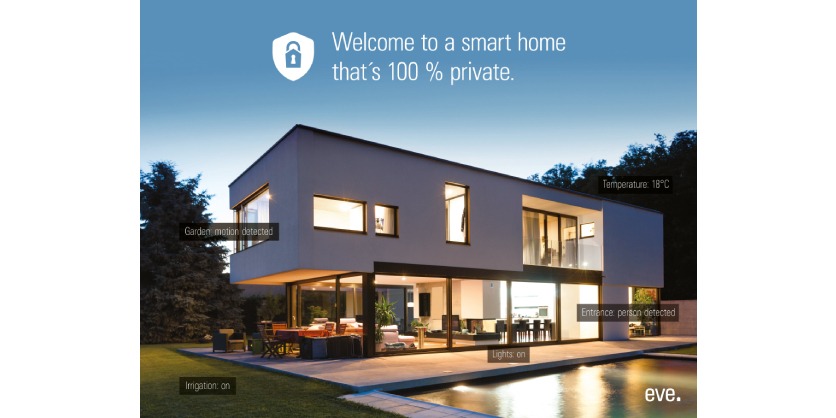
By Krystie Johnston
The cleanest energy is the energy that you don’t use. The good news is, there are great technologies such as Eve Systems and ABB’s smart buildings portfolio to help you use the energy that you do use as efficiently as possible.
Energy efficient building technologies can make meaningful impacts towards reducing energy consumption. Eve Systems, recently acquired by ABB, has a lineup of products that can help people use energy more efficiently in their building, office, or home. Ali Dika, Product Marketing Director for Smart Power and Smart Buildings at ABB Canada, spends his days with a team that focuses on commercial buildings and projects, ensuring they get the right products and solutions available on the market today.
We have a lot of fun at work, he says. “At the same time, our goal is to serve society and the community by helping to reduce one’s carbon footprint through digitalization and utilizing energy efficiently with smart electrical installations. We’re expanding towards new segments and subsegments that are continuously evolving in Canada and North America, like smart residential and EV charging.”
Advancements in technology make systems more integrated – and smarter
Although building technologies have seen significant growth in recent years, smart buildings are not new: the term “intelligent building” was coined in 1981 by the United Technology Building Systems Corporation1. The first intelligent buildings were mainly used to control HVAC (heating, ventilation, air conditioning) systems, but, as time and technology progressed, major advancements such as the internet made buildings more efficient and smarter by connecting devices digitally.
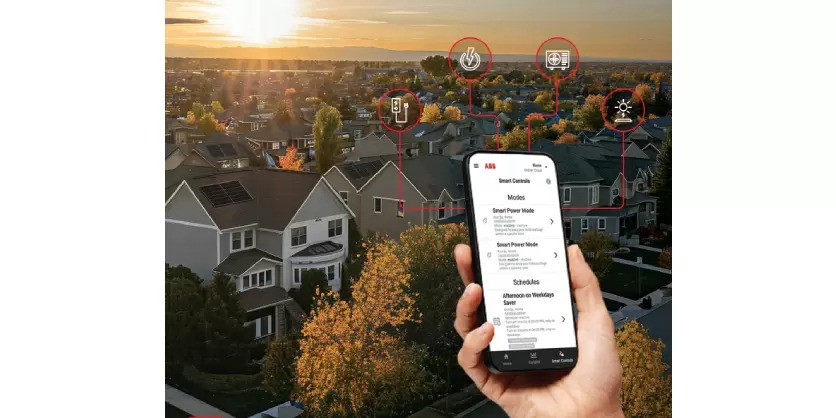
Dika says that the more these devices develop, the more integrated these systems become. “The devices communicate with each other, making people’s lives easier. These systems enhance building efficiency, enabling users and operators to have visibility on how the building is performing: what is going well, what is not going well in that building? What can be improved? What are the points of focus to invest in and improve upon in the electrical infrastructure?”
Investing in the technologies
ABB continuously invests to improve these products and technologies that support and upgrade smart buildings. They also invest in and acquire companies that have complimentary portfolios. “Two years ago, ABB invested in a Montreal-based company called ‘BrainBox AI’. BrainBox AI is a Canadian organization that produces an artificial intelligence smart box which customizes and reprograms building HVAC systems based on the people traffic, schedules and utilization of the space – without any human interference,” says Dika.
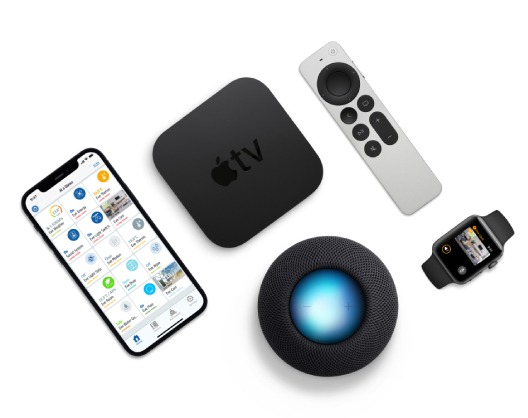
Another investment ABB made was in Eve Systems GmbH in 2023; a strategy to help them meet the accelerating demand for safe, smart, and sustainable retrofitting of residences. Eve Systems is a Munich-based leader in smart home products operating in Europe and North America.
They have an extensive range of home automation, energy management, security, and appliance monitoring devices – all of which are fully interoperable, irrespective of the manufacturer and user operating system.
Coming soon, ABB will launch its own ReliaHomeTM Smart Panels, which offer whole-home energy monitoring with circuit level control, facilitating the efficient use of energy by integrating and connecting devices more seamlessly. Dika explains, “If you have an electrical vehicle that you want to charge at night and you have a water heater or a spa or a jacuzzi that you want to turn off when you’re charging your electrical vehicle, you can do all of that using your smartphone while you’re traveling across the globe.”
At the forefront of building technologies that drive energy efficiency
The combination of in-house research and development and the acquisition of new technologies position ABB at the forefront of building technologies that drive energy efficiency. These products and solutions make it easy and seamless for people to connect with their smart systems and use energy as efficiently as possible.
Eve Systems, for example, offers an automation solution for your home or office that is easy to both access and use. Any user can buy it, read its manual via QR code, and set it up for their application. Smart lights, cameras, motion sensors, blinds, power outlets and more can be connected and controlled automatically, creating an ecosystem of home automation, by anyone – regardless of their technical background.
“We added this [Eve Systems] to our arsenal of portfolio products because at ABB we have a firm belief that connecting with retrofit users who are enthusiastic about automating their homes, and increasing their energy efficiency, without the need of having a huge investment compliments our wide range of systems and devices,” says Dika.
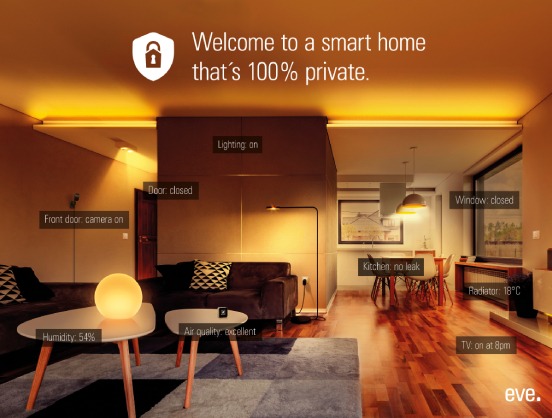
ABB’s extensive portfolio is ever-evolving and adapting
ABB’s residential solutions go far beyond Eve Systems; Eve is something consumers know from advertising, social media, or brick and mortar retail stores. But ABB offers a much larger portfolio, essentially everything related to electrical infrastructure.
Load centres in basements or entrances of a condo may contain ABB’s electrical equipment such as breakers that protect the building in the event of a fault. In addition to switch boards, power panels, lighting panels, and more, that are digitally connected to the internet.
Building on decades on industry experience
ABB’s portfolio is extensive, “It’s Eve, plus everything else that comes before Eve, that a regular user of a building would not even see unless he or she is an electrician,” says Dika. He adds that the drives are another facet of ABB’s technologies that make building more efficient. “ABB Cylon is also a home and building automation system, which, once again is connected to the Internet, connected to the BACnet systems, and has access to the Cloud. It offers smart, efficient, and safe control to your air quality at home or in an office building.”
BACnet or Building Automation Control Network is a data communication protocol for building automation and control networks and is both an international (ISO) and ANSI standard for interoperability between cooperating building devices. On a global level, ABB is a leader in building automation, and has been driving this technology and these innovations in North America and the rest of the world.
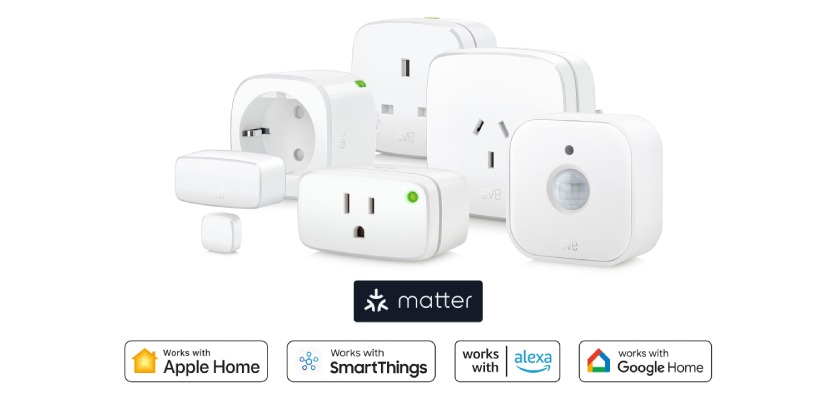
Leading the trend towards agnostic tech, leading by example
“We are moving into an era where the ease of installing and programming home and building automation is becoming the main driver of what installers and system integrators want. ABB sees that, and we are investing in making it a much simpler system to install and a much simpler system to be programmed, without letting any of the features dissipate into non-existence. We want to make sure that we are offering more features. We’re ensuring the safety and the comfort of the users all while conserving energy and reducing the carbon footprint,” says Dika.
“And we are leading by example. We are implementing these systems in our own facilities and our own factories so our own office spaces in Canada have our footprint in them,” he adds.
Transmission Control Protocol/Internet Protocol or TCP/IP is a suite of communication protocols used to connect network devices on the Internet. Security is a critical topic for any online system, including smart building technologies. Dika says, “At ABB we have a partnership with Microsoft, and we have our own cybersecurity team based in Europe that is continuously updating and upgrading our product and our firmware and our encryption protocols on our products.”
These protocols are inherent to all of ABB’s products, from their residential Eve System offering to their umbrella of electrical infrastructure products found in any building. There are specialists in Canda as well, capable of programming these products and servicing this infrastructure, with more growth anticipated in the future in this area as well.
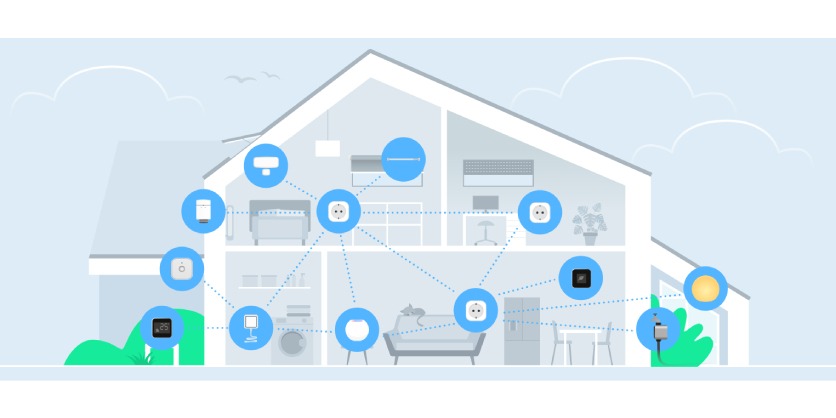
Alongside the trend Dika sees with home and building automation becoming easier to install and program is the trend toward agnostic tech, where the method or format of data transmission is irrelevant to the device or the program’s function. Users of Eve Systems can access and control these systems regardless of what device they are using, be it Apple or Android, for example.
Dika says, “Everything is now on TCP/IP. Everything is on the cloud. We speak about the cloud like this imaginary space, but it’s really all interconnected. Regardless of whether you’re connected to Alexa, to Google Home, or you’re connected to Android or iOS, if you’re sending a command to Eve, Eve will take that command and will implement it to your surroundings.”
The systems that best manage the energy used
Eve Systems may not be able to solve the age-old debate over what temperature to set the thermostat, but it will make living more efficient by connecting devices in your home or building to create systems that best manage the energy used therein. The cleanest energy is the energy that you don’t use, but luckily there are technologies available today that can help you use the energy that you do use as efficiently as possible.

Ali Dika
Ali Dika is a seasoned professional with over a decade of expertise in smart building technology. After joining the ABB team over 10 years ago in Dubai, United Arab Emirates, Ali currently serves as Product Director for Smart Power & Smart Buildings at ABB Canada, where he plays a key role in shaping the industry’s future. With a strong track record in innovation and customer relations, Ali’s career reflects his commitment to excellence and leadership in the smart building sector. Connect with Ali on LinkedIn.
More Information
Related Story
Smart Buildings: the Smart Choice for Sustainability
The sustainability benefits of smart homes are well publicised and those of us who have digital power outlets, smart thermostats and automatic lights know firsthand about the energy and cost savings. However, much less discussed is the broader adoption of smart building technology by companies and industries. With buildings generating nearly 30 percent of all greenhouse gas emissions,1 it would be impossible to ignore how quickly our path to net zero would expedite if entire sectors adopted them.




